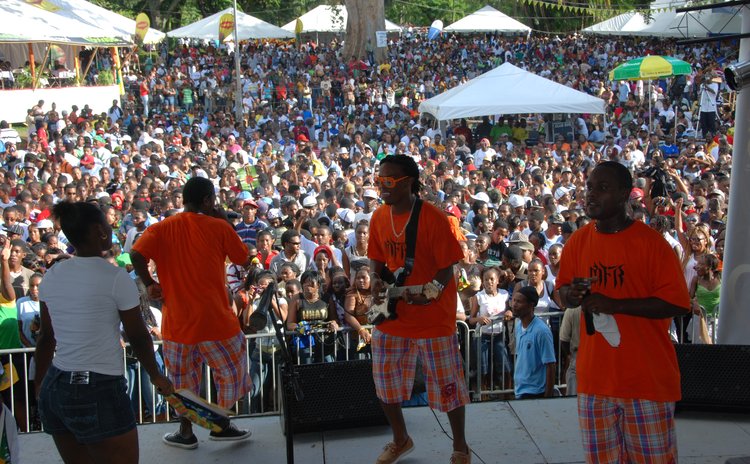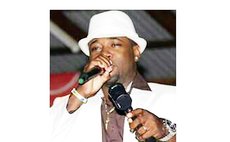On music and violence

"Correlational studies have suggested a connection between the kind of music youth listen to and various maladaptive behaviors and attitudes, though the direction of causality is not clear". Rubin, West, and Mitchell (2001)
Well, the findings in the study, referred to above, is clear and we have seen manifestations of this in our everyday life. During carnival celebrations, for instance, when the music is aggressive, fast paced and is further spurred on by lyrics which suggest "Kick Up" or "Wet de Down" you see how incensed revelers get. Conversely, if and when a fight occurs and the band stops, and for a few moments may play something slower to cool down the tempo, there is a much reduced chance of aggression.
All band members know, no matter what they tell you in defense of the music they play, that you are less likely to be physically confronted or to use an extreme example, stabbed in a Swinging Stars jam than almost any other band in Dominica during carnival. We can also say from many years of observation, and the statistics will bear us out, that after 60 years no one has been seriously maimed or injured at a Calypso show.
Still, there are exceptions to every rule; the primary one being that when persons what to do harm they will use the cover of crowds and the ambiguity and uncertainty it affords them to do mischief. The 1963 fire on the streets of Roseau occurred in the presence of the traditional steel drum, when no HiFI or Bouyon band was on the road. Though severe and fatal, we can't remember to many more when the traditional Calypso road march is played. Surely we can't say the same today for other genres where such potential for violence raises its ugly head on too many occasions that we care to remember.
Many eye brows were raised when Alix Boyd-Knights, the Speaker of the House of Assembly, suggested that that only Calypso should be played in the wee hours of the carnival jump-up, during the last lap which is often punctuated by Bouyon speeds of over 140 on the machine-driven drums seem to indicate "this is your last chance to do something stupid". So with liquor in their head, it just might be a good time to get back at someone with whom you had a previous altercation or exchange of words over the last few weeks, months or even years ago! When the rhythm is toned down then this does not provide the right ambience for tempers to flare or blood to boil. Imagine two guys fighting while Bob Marley's "One Love" is being playing or during Scrunter's call for Dominicans to unite?
Still there are those who share a different opinion and in the interest of being balanced and objective I must share the following thoughts by Keniel Huntley in his article titled "Crime and violence and Dance Hall music: "To say that dancehall does not promote crime and violence is more than hypocrisy; for those who deny the claim, both entertainers and some fans, are the same people who assert Dance Hall music is indeed influential. However, they will tell you that Dance Hall music dishes out to our children is more positive…" Yan Dominic Searcy, another researcher, surmises that "blaming Rap for social ills defies history and logic- popular music doesn't create reality, it reflects it".
Now the statement categorically states that the violence in song and the sexual innuendoes we hear is a reflection of society itself- singing to an audience, a fan base wanting to hear just that. The writer goes on to state that "Faced with problems (the ills of the black community) that lacks easy solutions, people often look for scapegoats. In this case the scapegoat is Hip Hop music". I wish to add the scapegoat may just be Bouyon in the Dominican scenario.
If Dominica wants to change and move lyrical content in another direction our appreciation for the violence, lawlessness and everything else must change. Soon politicians will be looking for compositions and employing bands to drive their campaigns only to forget that the musicians exist soon after. This is the climate and reality our music represents. Who pays the piper calls the tunes; hence, the behaviour of the piper determines the compositions consumed.
Songs with violent lyrics increase aggression-related thoughts and emotions and this effect is directly related to the violence in lyrics, according to a new study published by the American Psychological Association (APA)




